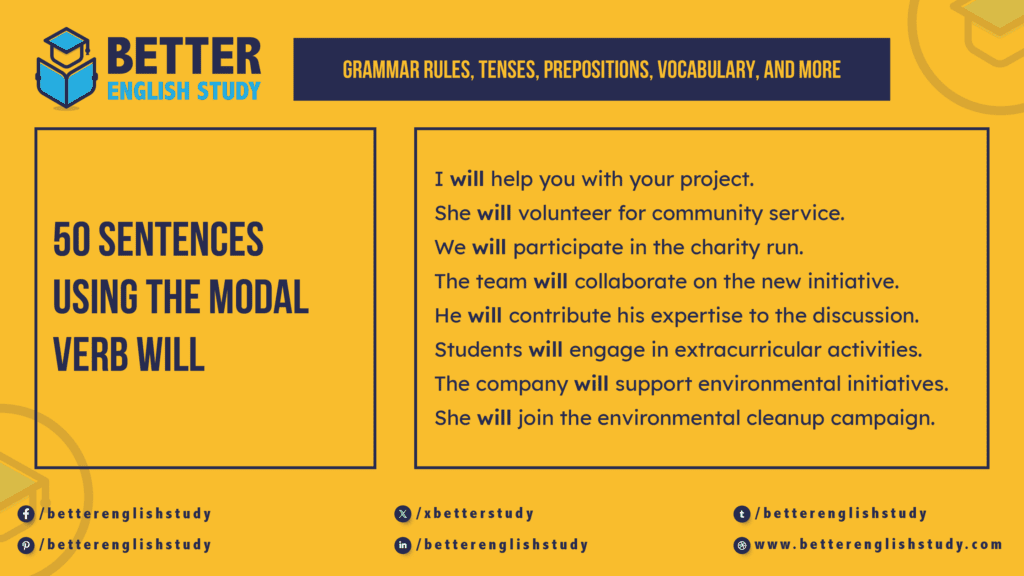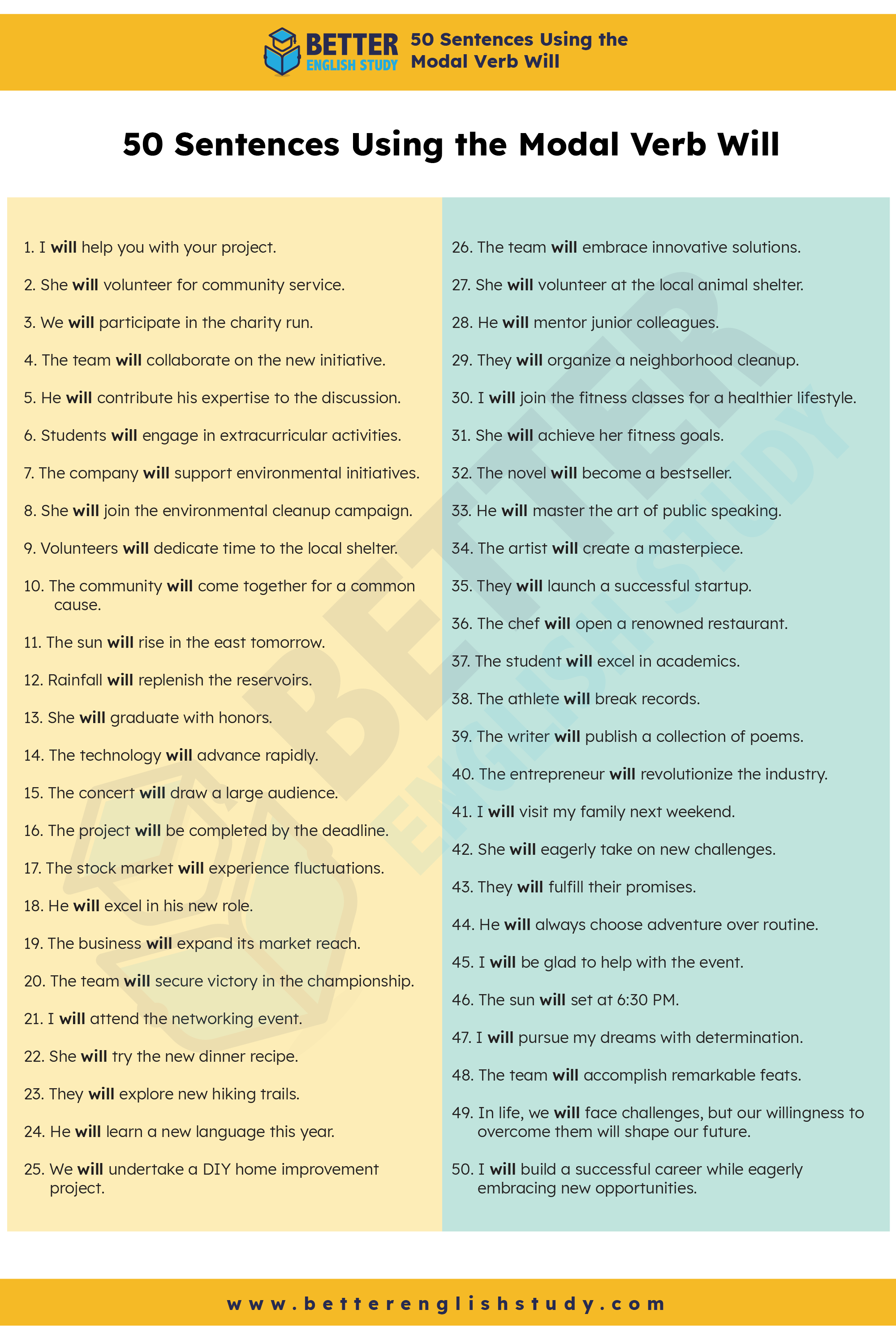
The modal verb “will” is a linguistic powerhouse, capable of expressing both certainty and willingness. Understanding how to use “will” is essential for conveying definite predictions and showcasing a readiness to engage in various activities.
In this article, we will explore 50 examples that illustrate the diverse contexts in which the modal verb “will” can be employed, emphasizing the keywords “willingness” and “certain prediction.” Additionally, we’ll delve into when to use “will” to enhance your language skills.
When to Use Will
Before delving into the examples, let’s explore when to use “will” in English. “Will” is a modal verb used for expressing the future, indicating a willingness to perform an action or make a certain prediction. Understanding when to use “will” ensures clear communication, whether stating future plans or showcasing an eagerness to participate.
Let’s see the examples for a better understanding.
1. Expressing Willingness
- I will help you with your project.
- She will volunteer for community service.
- We will participate in the charity run.
- The team will collaborate on the new initiative.
- He will contribute his expertise to the discussion.
- Students will engage in extracurricular activities.
- The company will support environmental initiatives.
- She will join the environmental cleanup campaign.
- Volunteers will dedicate time to the local shelter.
- The community will come together for a common cause.
2. Certain Predictions
- The sun will rise in the east tomorrow.
- Rainfall will replenish the reservoirs.
- She will graduate with honors.
- The technology will advance rapidly.
- The concert will draw a large audience.
- The project will be completed by the deadline.
- The stock market will experience fluctuations.
- He will excel in his new role.
- The business will expand its market reach.
- The team will secure victory in the championship.
3. Willingness in Daily Activities
- I will attend the networking event.
- She will try the new dinner recipe.
- They will explore new hiking trails.
- He will learn a new language this year.
- We will undertake a DIY home improvement project.
- The team will embrace innovative solutions.
- She will volunteer at the local animal shelter.
- He will mentor junior colleagues.
- They will organize a neighborhood cleanup.
- I will join the fitness classes for a healthier lifestyle.

4. Predictions in Personal Development
- She will achieve her fitness goals.
- The novel will become a bestseller.
- He will master the art of public speaking.
- The artist will create a masterpiece.
- They will launch a successful startup.
- The chef will open a renowned restaurant.
- The student will excel in academics.
- The athlete will break records.
- The writer will publish a collection of poems.
- The entrepreneur will revolutionize the industry.
5. In Daily Conversations
- I will visit my family next weekend.
- She will eagerly take on new challenges.
- They will fulfill their promises.
- He will always choose adventure over routine.
- I will be glad to help with the event.
- The sun will set at 6:30 PM.
- I will pursue my dreams with determination.
- The team will accomplish remarkable feats.
- In life, we will face challenges, but our willingness to overcome them will shape our future.
- I will build a successful career while eagerly embracing new opportunities.
These 50 examples showcase the versatility of the modal verb “will” in expressing both willingness and certain predictions. Whether articulating future plans, stating personal aspirations, or making confident predictions, “will” serves as a powerful tool for effective communication.
Understanding when to use “will” enriches your language skills, allowing you to express both a firm commitment to future actions and a certainty about specific outcomes.
